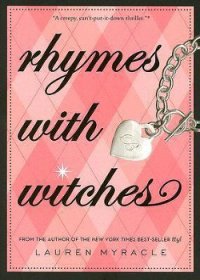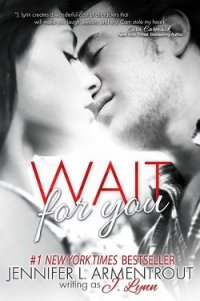Sweet Filthy Boy - Lauren Christina (читать книги без TXT) 📗
I laugh, spinning my phone on the bar in front of me. “I’m new to town,” I say. “It was a long day at work and I needed a drink. A friend said this place had the best view around.”
“‘A friend’?”
“Just this guy I know,” I tease.
Ansel smiles and looks over his shoulder. “Your friend might be wrong. Not sure you could beat the view on top of that,” he says, motioning to the Eiffel Tower.
The bartender sets our drinks in front of us and I reach for my glass. “No alcohol up there, though.”
“Ahhh, but yes. There’s champagne on the top level. Served in the finest plastic stemware around. Don’t want to miss that while you’re here.”
“You make me want to brave the terrifying lines and claustrophobic elevators.”
“You must make sure to do it before you leave,” he says. “It’s a touristy thing, but it’s sort of required at least once in your lifetime.”
“Actually, I did see the top,” I admit, and take a sip of my drink. “I went alone on one of my first days in town. I didn’t know they had booze there, though, or I’d have stayed a lot longer.”
“Maybe someone can go with you next time,” he says quietly, apology darkening his expression. He’s guilty that I’m alone so much. I’m guilty for interrupting him. We’re both living so much in our own heads, no wonder we pretend.
“Maybe,” I answer with a smile. “And you live here? In Paris.”
Ansel nods and takes another sip of his drink. “I do. But my mother is American. And I traveled around the States after college.”
“Just traveled around?” I tease. “Backpacked your way across America?”
“Close,” he says with a laugh. “The summer before law school I participated in a program called Bike and Build. Have you heard of it?”
I shake my head a little, saying only, “I’ve heard the name . . .” Of course Ansel has mentioned it before, but I feel a bit guilty never having asked him more about it.
“It’s basically a group of people—mostly university-aged—cycling across the country for three months, stopping en route to work on various building sites.”
“I went to Vegas after I graduated from college. I think you win.”
“Well that could be fun, too,” he says meaningfully, eyes teasing as he takes a drink from his glass. “I hear there is plenty of adventure to be had in Vegas.”
“Yes,” I say and smile. “But three months? On a bike?”
Ansel laughs. “Three months. Well, eleven weeks to be exact. Riding about seventy miles a day.”
“I would be dead. You’d have to call my mother to collect me by about day four.”
He makes a show of looking me up and down appreciatively. “You look like you could handle it.”
I shake my head. “I assure you, I am not good on two wheels. So, tell me. Did you sleep in hotels or . . . ?”
“Sometimes,” he answers with a shrug. “Some groups stay in churches or other places. Maybe a group of families. My group had a sort of . . .” He pauses to search for the word, his brows drawn together. “Sleeping outside in a tent?”
“Camping,” I say with a laugh.
He snaps his fingers. “Right. We’d usually be in one place for a few days while we worked, and so we’d set up a kind of traveling camp. Three or four of us sharing a canvas tent, sleeping on the worst cots you can imagine.”
I look at him now, in his crisp shirt and pressed dress pants, and have a hard time imagining him even as he was, dressed down in Vegas, let alone sweaty and working on construction sites. I let my eyes linger on his neck and enjoy the fantasy for a beat. “That’s pretty intense.”
He nods in agreement. “Four of us, together all day long. Sometimes it was excruciating, the heat. How humid it could be and we would all just keep pushing until night. It was hard, but it was the most fun I’d ever had. I don’t know that I’ll ever know anyone in the way I know those three friends.”
Fascinated, I break character for just a moment. “You mean Oliver and Finn and Perry.”
A shadow falls over his face and he nods slowly.
Shit. “I’m sorry, I didn’t mean to—”
But he’s already holding up his hand. “No. Those relationships are some of the best and . . . complicated of my life. Does that make sense?” I nod. “I rode next to them for sometimes eight or ten hours a day. I slept three people deep in a space no bigger than your average bathroom. We missed our families together, we comforted each other, we celebrated some of the proudest moments of our lives. Practically living in each other’s pockets at that age made three months feel like a lifetime, and it . . . I guess maybe it’s hard when lives change in ways that aren’t how we imagined or hoped.”
Whatever this Perry is going through, it’s obviously something Ansel is having a hard time dealing with. He’s quiet for a moment, attention zeroed in on his glass. I’m not used to seeing him like this, and it presses like a bruise in my chest. I didn’t realize how hungry I was for more details of his life until we were here, pretending to be sharing these pieces with the safety of a stranger. “You don’t have to talk about it,” I say quietly.
“It’s just that there’s nothing I can really do to fix what Perry’s going through, and . . . I don’t mean to sound self-important, but that’s not a situation I’m familiar with.”
“Whatever he’s dealing with,” I say, “you can be there, but it is his life. You can’t make it perfect for him.”
He studies me for a silent beat, opening his mouth and then closing it again. “No . . . It’s just that”—he pauses and draws in a deep breath—“I know. You’re right.”
I want to tell him I understand, that I know what it’s like to be so close to someone, to feel them drift away and be unable to pull them back, but I can’t. The closest people in my life have always been Harlow and Lorelei. They’re my constants, and have been since we were in elementary school. By the time Luke and I broke up after the accident, I was ready to let him go. And while I might feel the occasional hollow spot from where he used to fit into my life, I think I always knew I wasn’t going to be with him forever.
Wanting to change the subject, I whisper, “Well, from where I’m sitting, whoever stood you up tonight was a total idiot.”
Understanding washes over his expression and he turns on his stool to face me completely, one elbow propped up on the bar.
“I don’t know,” he says finally, biting his bottom lip. “I’m beginning to think she might have done me a favor . . .” He leaves the sentiment hanging meaningfully between us, and we continue to sit there in silence, the pulsing bass of music overhead thumping all around us. “Do you have a boyfriend?” he says suddenly.
“Boyfriend?” I shake my head, fighting a grin. “No.” It’s technically true. “Girlfriend?” I ask in return.
He shakes his head, eyes flickering to my mouth before blinking up to meet mine again.
Once the conversation about Bike and Build moves on, all traces of sadness and regret seem to disappear from Ansel’s eyes and it’s just like the first night we were together: the two of us, talking for hours. It helps me remember every detail that hadn’t yet returned. Like the way he talks with his hands, pausing only when he forgets a word, his brow furrowed in concentration, before I laugh, a mini-game of Charades breaking out as I help him find the right one. Or the way he listens so carefully he tilts his head toward me, eyes continually inspecting my expression. He makes me feel like I’m the only person on the planet. He looks at me like he’s one second away from devouring me.
No wonder I proposed.
He asks me about my life in San Diego, and listens with the same rapt attention as if the night in Las Vegas never happened, and he hasn’t heard every detail before.
“And you loved dancing,” he says, smiling, his empty glass abandoned on the bar in front of him. It’s not posed as a question, but an observation.




